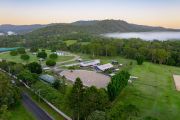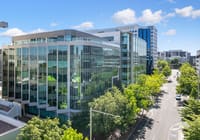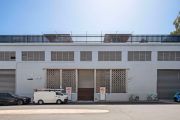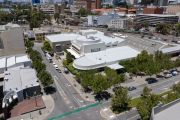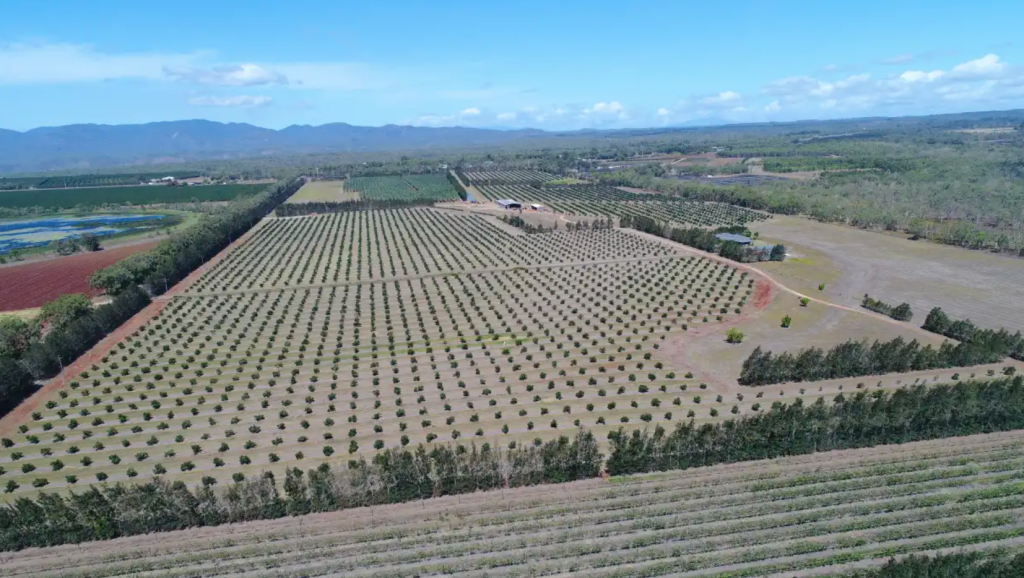
Sydney restaurateurs go bananas for $11.5m Queensland farm
Two former Parramatta restaurateurs have boosted the flood of capital into horticulture by paying $11.5 million for a premium banana, avocado and custard apple farm west of Cairns in Far North Queensland.
Records show Andrew and Geraldine Coulson, the former owners of Lachlans restaurant at Old Government House in Sydney’s western metropolis, acquired Lankester’s Farm at Walkamin in the Atherton Tablelands from Lankester Bananas founder Michael Lankester.
The Coulsons sold Lachlans, one of Parramatta’s top restaurants in March last year. They settled on Lankester’s Farm at the end of March this year.
Ms Coulson is a member of the Howe family, which founded Walkamin-based Howe Farming Group, the largest avocado grower in Queensland and also a grower of bananas and coffee.
While Ms Coulson is a shareholder of Atherton Tablelands-based business Howe Farming and the sister of managing director Dennis Howe, The Australian Financial Review understands Lankester’s Farm was acquired independently by the Coulsons.
The 123-hectare farm, first developed by Mr Lankester in 2009, is home to 29,200 Lady Finger variety banana plants, 3,700 trellised KJ Pink variety custard apple trees and 5,025 Shepard and 780 Hass variety avocado trees across two blocks at Hansen Road and Kennedy Highway.
Included in the sale was a 389 megalitre allocation from the Mareeba Dimbulah Water Supply Scheme and a modern homestead.
Previously put up for sale in 2017, Lankester’s was sold by Peter MacPherson of Nutrien Harcourts Queensland Rural.
Mr MacPherson declined to name the buyers, but said they were a local family.
“It’s a good result for a very good farm in a good area,” Mr MacPherson told The Australian Financial Review.
“The horticulture sector in the Tablelands is quite buoyant as is beef cattle. Food production businesses are very popular.”
Danny Glasson, a director at valuation firm Herron Todd White, was more emphatic about the sale, writing in the group’s monthly property report that it “set new value levels” for irrigated red soil horticulture in the Mareeba district.
“The farm was extensively developed with an award-winning pavilion-styleresidence and modern shed infrastructure considered well above the district standard,” Mr Glasson wrote.
“The purchaser is understood to have paid a significant premium toacquire the farm which is in close proximity to its existing avocado operations.”
While labour scarcity remains a challenge for growers due to the closure of international borders since the start of the pandemic, high commodity prices and low interest rates are fuelling investment into the horticulture sector.
The most stark example of this appetite has been the lengthy and ongoing tussle between Macquarie and Roc Partners for Vitalharvest, owner of a $300 million portfolio of fruit orchards leased to Costa Group.
“Over the past year, the ANZ World Commodity Price Index has reported a solid upward trend of commodity prices which has consolidated over the first quarter of 2021,” wrote Karina Salas, a research director at Colliers in the firm’s latest Agribusiness Research and Outlook Report.
“Commodities like dairy, meats and horticulture products are currently transacted at levels above their respective historical long-term averages,” Ms Salas wrote.
“Taking into account this trend, the outlook of the Australian agribusiness sector is promising and is expected to be supported by the solid and continuous global demand for food and the consistent capital expenditure growth seen in the sector over the past three decades.”
The Colliers report also noted that Australian horticulture has one of the smallest exposures to potentially volatile global export markets – 20-30 per cent of production – compared with almost 100 per cent for cotton and wool and 68-75 per cent for meat and livestock.

